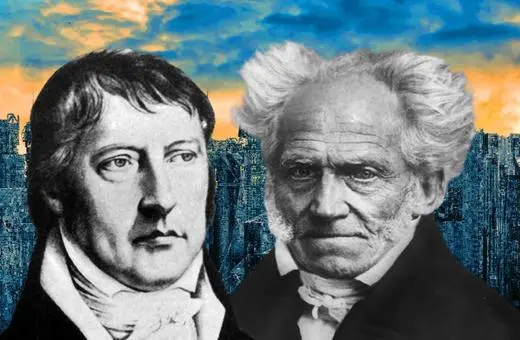Whether we realize it or not, we live in the shadow of postmodernism. Contemporary philosophy is a response to the postmodernist challenges to Enlightenment thought. And yet, nearly all the proposed alternatives fail to go beyond the postmodernist framework. Jason Ānanda Josephson Storm shows why philosophy has failed to overcome postmodernism and proposes his own alternative.
Despite recent polemics, postmodernism’s philosophical heyday has long passed. While “postmodernism” was once indeed important, the iconic works that made the term popular focused on artistic and intellectual movements of the 1970s and 1980s that have since become outmoded. It has been a long time since Andy Warhol, William Burroughs, or Philip Glass were among the most influential in their respective fields. Likewise, the theorists most routinely associated with postmodernism as an academic paradigm, such as Lyotard (born 1925), Foucault (born 1926), Derrida (born 1930), and Irigaray (born 1930), were all older than Elvis (born 1935); and even if some constellation of their disparate philosophies was once dominant, the current moment is better seen as a squabbling match between postmodernism’s presumptive successors.
___
The opposition to postmodernism gave it more coherence as an alternative to positivism. The formation of postmodernism was less a “French invasion” than an Anglophone bricolage construction.
___
Postmodernism took hold initially as a polemical category. Much of the early writing about “postmodernism” or the “postmodern condition” was intended to as condemnation. But these writings appeared when logical positivism (and related movements) had attained ascendency in Anglo-American philosophy departments. The increasing specialization of Anglophone philosophy and its attempt to turn itself into a “scientific discipline” meant that scholars in other academic fields were already beginning to look elsewhere for broader reflections on knowledge and meaning. The opposition to postmodernism gave it more coherence as an alternative to positivism. The formation of postmodernism was less a “French invasion” than an Anglophone bricolage construction. It occurred by way of textbooks and other anthologies that presented together, and in translation, selections from the work of disparate Continental thinkers from different academic disciplines who often saw themselves in conflict with each other. The canonization of these thinkers became increasingly associated with emancipatory political battles both within the framework of existing departments and alongside the emergence of women’s studies and many ethnic studies programs. The more critics opposed postmodernism, the more postmodernism solidified itself as a counter-movement with a sceptical stance. In this respect, it emerged via a feedback loop between polemical criticism and actual disciplinary paradigms. It also served the general function of providing a shared canon and conversation across a range of disciplines. But in becoming dominant in many disciplines, it has increasingly lost its claims of counter-hegemony, and many of its philosophical insights have come to seem stale.
 SUGGESTED READING
The potential of postmodernism
By Simon Glendinning
SUGGESTED READING
The potential of postmodernism
By Simon Glendinning
The last two decades have seen the gradual bubbling up of alternatives. Although many of them were short-lived, today there are four main kinds of alternatives whose signature differences from each other are rooted in part in what they see as postmodernism’s shortcomings.





















Join the conversation